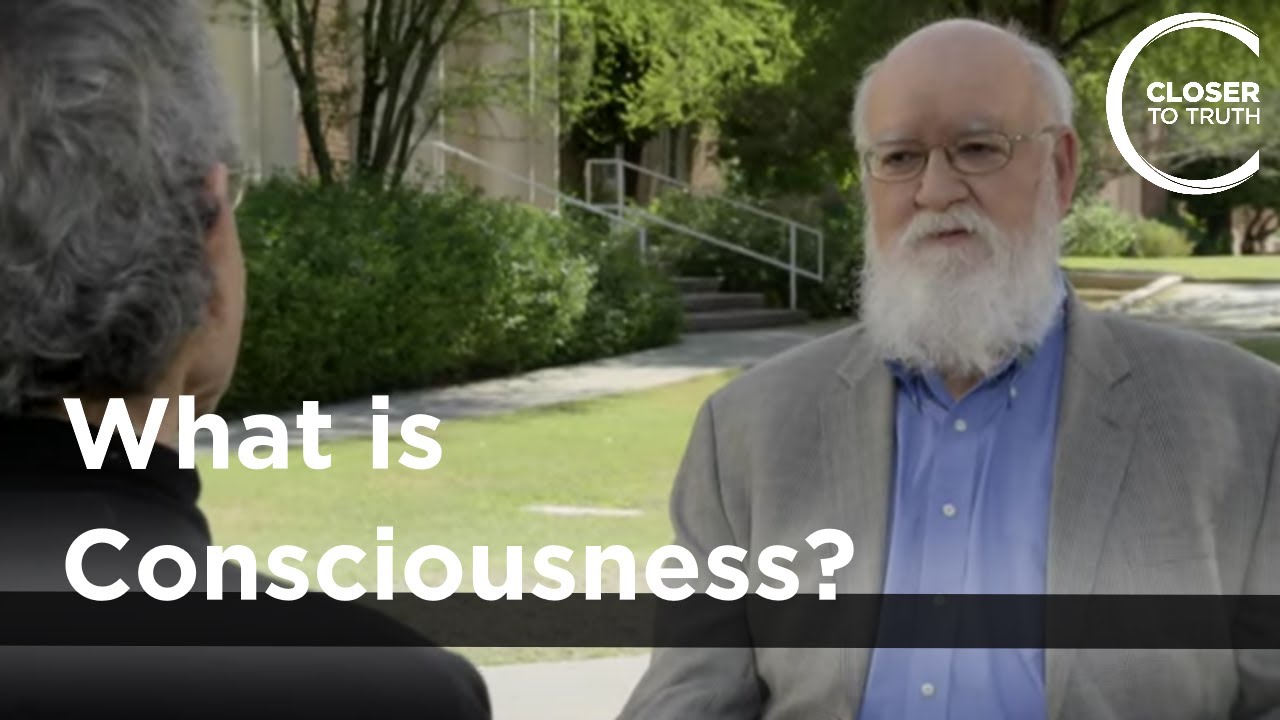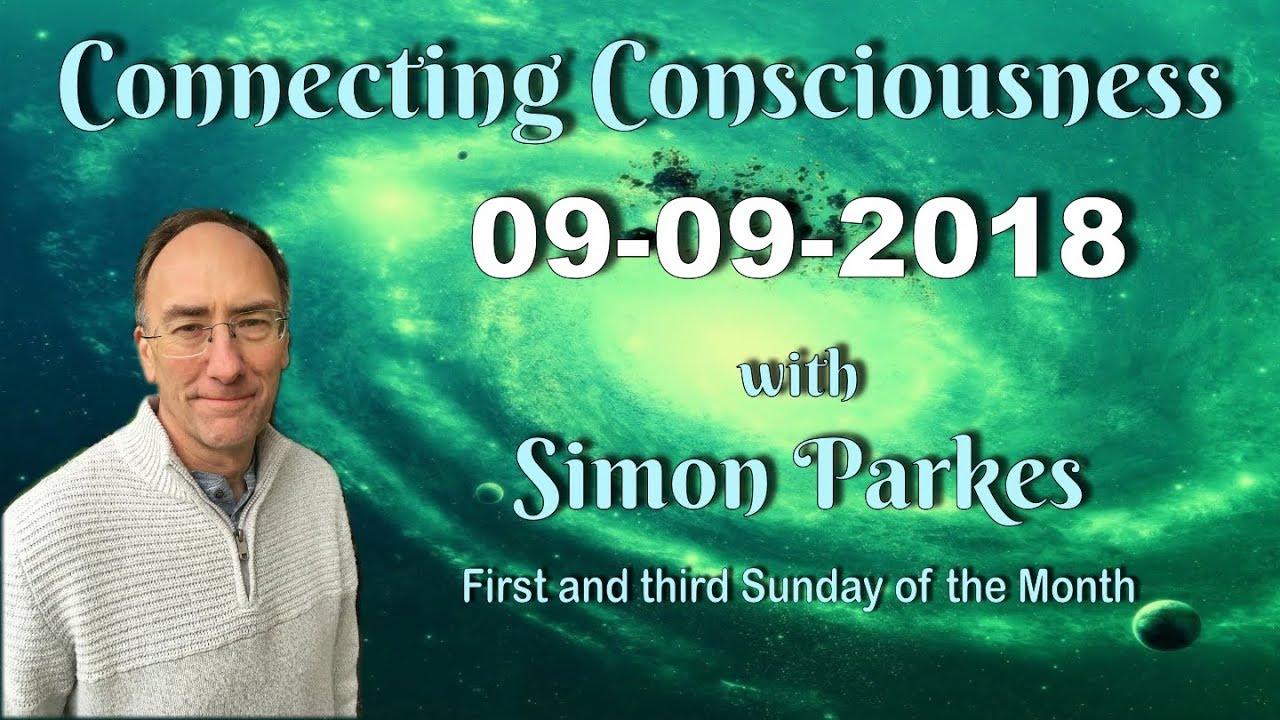Closer To Truth
Consciousness is what we can know best and explain least. It is the inner subjective experience of what it feels like to see red or smell garlic or hear Beethoven. Consciousness has intrigued and baffled philosophers. To begin, we must define and describe consciousness. What to include in a complete definition and description of consciousness?
Free access to Closer to Truth’s library of 5,000 videos: http://bit.ly/376lkKN
Watch more interviews on consciousness: https://bit.ly/30umCPb
Daniel Clement Dennett III is an American philosopher, writer and cognitive scientist and is currently the Co-director of the Center for Cognitive Studies and Professor at Tufts University.
Register for free at CTT.com for subscriber-only exclusives: http://bit.ly/2GXmFsP
Closer to Truth presents the world’s greatest thinkers exploring humanity’s deepest questions. Discover fundamental issues of existence. Engage new and diverse ways of thinking. Appreciate intense debates. Share your own opinions. Seek your own answers.
Source




As for the perceptual result, one scenario with relatively high plausibility is selected from the alternative scenarios that caused the combinatorial explosion.
To perseive, you have a quantum computer.
Your conscious state is the quantum entangled state of your quantum computer.
Your conscious state creates your world with your time by quantum entanglement.
Philosopher is just that—– philosopher. We had so many throughout the ages and they should not be in the business of explaining whether there is Creator or not……..since they don't more than ordinary people but pretend like they do….
Nothing useful in this conversation. Its just bad science. A classic "not even wrong" scenario
Maybe consciousness through time interacting with information?
Well that was quite a non-answer to the question what consciousness is… a series of incohesive statements. From a real philosopher, one would expect at least an attempt to describe a holistic picture of what consciousness might be, as part of life and the universe, in other words a philosophy. Have materialists like Mr Dennett forgotten how to be open-minded and to think out-of-the-box about things they cannot yet explain?
He always says so much things and keep spining around …
The features of consciousness are the content of consciousness so to speak (what is percieved in it's totality which is intertwined with how the perception occurs(two people feel two things differently)), which are dependent on the functioning of the brain (mind) – this simply is not çonsciousness.
The reason a materialistic view like this can not be correct is that if physical systems resulted in subjective experience (consciousness), then we would have an observable link between the two that allows to decipher/understand the nature and functioning of consciousness in terms of it's components – this is simply something we do not have, because as we see consciousness is that of which is only measurable in terms of itself. It can only be understood in terms of itself, which is why there is no adequate method of explaining it or qualia (which are the same thing as consciousness really)
Way to over do it with the camera slider zigging back and forth. I just love being distracted while taking in intellectual content. Please consider using a tripod in a fixed position.
In case you think I am exaggerating when I say that Dennett thinks that pain does not hurt, let me quote from his "Quining Qualia" .
"Qualia" is an unfamiliar term for something that could not be more familiar to each of us: the ways things seem to us. As is so often the case with philosophical jargon, it is easier to give examples than to give a definition of the term. Look at a glass of milk at sunset; the way it looks to you–the particular, personal, subjective visual quality of the glass of milk is the quale of your visual experience at the moment. The way the milk tastes to you then is another, gustatory quale, and how it sounds to you as you swallow is an auditory quale; These various "properties of conscious experience" are prime examples of qualia….. At first blush it would be hard to imagine a more quixotic quest than trying to convince people that there are no such properties as qualia; hence the ironic title of this chapter. But I am not kidding. "
Qualia are subjective experiences. I have yet to see any explanation as to how subjective experience can arise from a bunch of atoms.
You cannot duplicate consciousness in materialism. A perfect copy of me would take up it's own time and space. Quantum is not materialism
Disagree
There is a tension? He e xplains nothing!
Blablabla. Why is there qualia? Why do I exist? No answer. Just Dancing aoround the question.
Bennett seems to be saying that the extensive analysis of numerous descriptions of specific qualia results in an precise description such that there is nothing left to describe. Sure, but isn't this conflating the description with the described? Or as its more commonly expressed, mistaking the map for the territory. Such a static description of an experience cannot capture the flow and evolution of the associated feelings any more than an exhaustive dissection and description of a living body can reveal the lived experience. Obviously, this reductive approach to consciousness will inevitably render all qualitative experience causally inert (dead).
General science…no answer….
Pretending there isn't a agreed upon definition of qualia is a great way to avoid the question 😂
So this is what Santa does in his spare time.
Who is interviewing Daniel Dennett? My only criticism is that the interviewer needs to be identified. The interviewer in a integral part of the interview.
Q: What is Consciousness?
A: Wave Diffraction.
Albert
Is this science??????????????????? How is this science? Well we shouldn't have embraced freud we would have been saved of all this preposterous monsterity in the name of science
He's talking about mind stuff. Not Conscioussness per say.
Consciousness is being aware of being aware.
1:29–1:42: "What's happening in the brain is there are many competing streams of content running in competition, and they are fighting for influence or fame in the brain."
You can stop the video right there, since a brain isn't necessary at all for conscious behavior. See for example https://www.youtube.com/watch?v=OH1X8o3QUOQ notably the sections 2:08–2:28 and 5:16–5:55. No brain, and conscious behavior.
What has this man been doing (0:03–0:06🙂 "thinking about consciousness professionally for getting near half a century now"?
Dykeritz
A man that just doesn’t get it.
There is no way rationally to refute physicalism- the contention that only matter exists and consciousness is an “emergent property of the brain.” It could be 100% true. The question isn’t – as I understand it – really about “qualia” but about awareness of qualia. A computer is able to perceive and respond to stimuli. This is a matter of switches on or off. If you have trillions off on-off switches, the result will still be the same as if you had one. There is no subjective awareness of the stimulus. So with neuronal activity. The synapses are firing or not. If there is only matter, there can be no awareness.
Also, spirit/matter dualism is not the only alternative to physicalism. Idealism does away with dualism just as materialism does. In that ontology, there is only mind.
But neither ontology can be proven. Science has mistaken its own limits for the limits of reality. Ultimately all we know directly- not as a perception of sense- is one truth- our own awareness- but that can only be known if we are aware of something – an object. It cannot be directly perceived, because it is not an object. It is the subject. Therefore, science says it doesn’t exist- because it it is not an object of awareness. It is the invisible subject. Science can only deal with objects- never the subject.
Dennet is a dunce.😂
I can't understand this man!!
He is so dogmatic about the non-existence of subjective consciousness, I am beginning to think he doesn't have one. Perhaps he is a computer. Every thinking person instantly knows that the primary evidence of anything else is that one observes it subjectively.
This guy doesnt' know nothing. Wasted time.
Is doe,.rey, me a western construct? Would he get the same patterns and clusters using them with non-traditional makers of music?
Consciousness is secreted by the brain, like how the stomach secretes digestive juices.
The experience (e.g. emotion, thought) is dictated deterministally by the biochemical processes ongoing in the brain at that exact moment.
Where is the hard problem?
Am I missing something?